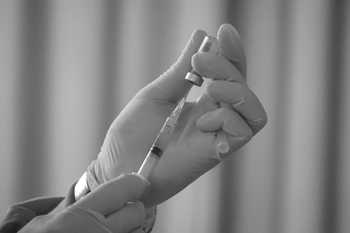The first cases of Ebola in West Africa were reported in March 2014. This is the largest Ebola outbreak since the Ebola virus was first discovered in 1976. It starting in Guinea and spread to Sierra Leone, Liberia, Nigeria and Senegal. There have been more cases and deaths in this outbreak than all other outbreaks combined. On August 8, 2014, the World Health Organization (WHO) Director-General Dr Margaret Chan, declared the outbreak a Public Health Emergency of International Concern. The most severely affected countries, Guinea, Sierra Leone and Liberia lack health infrastructure and human resources. More than 4, 500 people have died from Ebola in these countries.
Weekly case update
New cases:
- October 12, 2014 First Dallas nurse confirmed to have Ebola.
- October 15, 2014 Second Dallas nurse confirmed to have Ebola.
Cleared cases:
- October 20, 2014, the WHO declared Nigeria and Senegal free of Ebola.
- October 20, 2014, 43 of the 48 people quarantined by the city of Dallas because they had contact with a patient who died of Ebola have been cleared from quarantine.
- October 19, 2014, initial test of a Spanish nursing assistant hospitalized with the virus showed no traces of Ebola in the blood.
Government action
Although no cases have been recorded in China, the Chinese government is taking preventative actions and plans to work with West African governments to help with the current crisis. China has about 20, 000 citizens currently working in West Africa. China also increased screening at all ports of entry and provided guidance for health care workers throughout the country.
October 15, 2014, U.S. soldiers deployed to Western Africa are constructing facilities to treat Ebola patients, provide logistics, engineering and medical skills to help contain the epidemic.
October 17, 2014, the U.S. appointed Ebola Czar Ron Klain to help monitor and prevent further spread of Ebola. The Pentagon announced the creation of a new, 30-member U.S. military Ebola response team. The Defense Department said the team will feature 20 critical care nurses, five doctors and five trainers for infectious diseases protocols.
Business impact
Pinkerton assesses that the current Ebola threat will likely affect travel in the near future. With additional screening for people who have traveled to or through West Africa. In addition, airlines may take extra time to sanitize planes that carried passengers at risk of having Ebola and delays may occur due to the extra preparation.
Clients who think they may be at risk for Ebola exposure should monitor their health for 21 days and seek a medical provider if symptoms of Ebola become evident.




